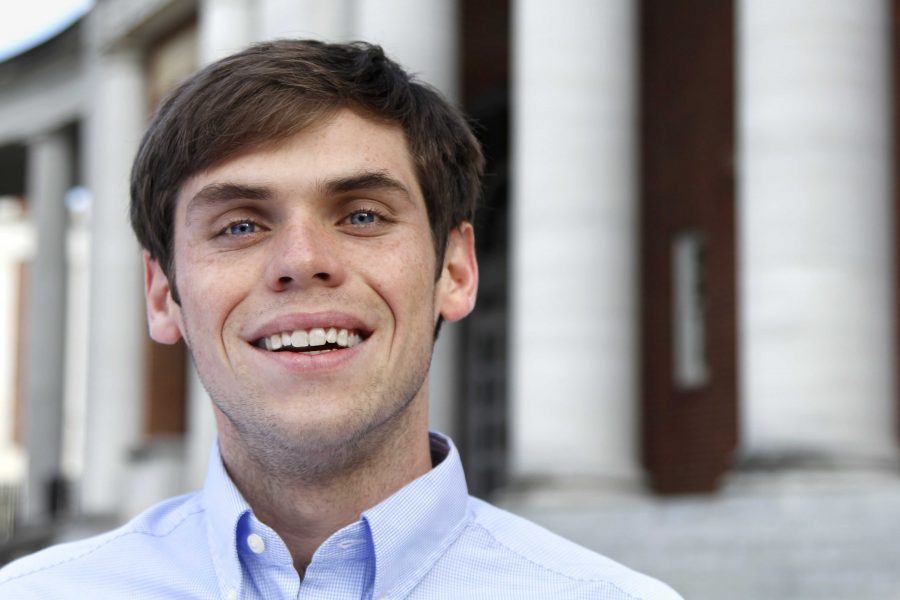Updated Oct. 23 at 10:22 a.m.
There have been a number of pieces written in the Hustler about the disadvantaged status of Christians on Vanderbilt’s campus. Those authors have good intentions in wanting to stand up for a faith that they believe to be under attack, and none of this is to question the authenticity of their faiths. But, as a Christian and as editor-in-chief of Synesis, a religious publication on campus, I want to disagree and clarify what it is I believe to be Christianity’s place on campus.
The claim that there is discrimination against Christians on Vanderbilt’s campus is misguided. To the contrary, I, along with many others, experience a vibrant community that Vanderbilt and its students and faculty both foster and protect. And while incidents like the one in 2012 show that Vanderbilt often misses the mark in characterizing religion (mistaking it for a student interest group instead of an active faith and way of life), Christians are far from a disadvantaged group on campus. More broadly, Christianity is certainly not a persecuted religion in the West. But lodged in many concerns about Christianity’s Western persecution is a conflation between two types of the Christian religion. This distinction between the two types is seldom made, resulting in shouting matches, phony ‘culture wars,’ and incoherent Facebook debates.
cultural Christianity can be and has been an oppressive regime.
Cultural Christianity—as a civic ideal—is distinct from, and often opposed to, authentic Christianity, or the religion as a practiced faith. The two are related, and have been aligned to varying degrees at different points in history. But the distinction between the two is critical. Cultural Christianity, not authentic Christianity, is an instrument that different groups use to exert control over governments and communities.
Authentic Christianity is concerned with the soul. Its primary tenet is that Jesus Christ has reconciled an imperfect world to a perfect God through his life, death, burial and resurrection. It yearns for the world to know God and his beauty, goodness and peace. Seen through this light, cultural Christianity is an imitation of the message of authentic Christianity, which focuses more on helping the marginalized, preaching hope and seeking understanding than it does about political clout or societal privilege. Over and over again throughout history, human beings have replaced the meekness of authentic Christianity with the power of cultural Christianity. And so we sit in a world formed in large part by ‘Christianity’, but by a cultural Christianity that has been defined more by its material passions than by its spiritual ones. Indeed, cultural Christianity can be and has been an oppressive regime.
Make no mistake, though, authentic Christianity is still a controversial religion. But it’s not controversial for its political contention. Rather, Christianity is controversial because it claims that a perfect man, who was also God, was crucified by the Romans, rose from the dead after three days, and that all of this was enough for him to atone for all the sins of every person to have ever lived. This is nothing short of preposterous.
And yet I believe it. I believe it by a faith informed by reason and understanding, but a faith nonetheless. Culture wars, political power and university policies are too puny to compare to the immense treasure that’s found when one becomes an ‘ambassador’ of that claim. This looks like feeding the hungry, caring for the widow and orphan, working for the common good, and loving our neighbors as ourselves. The work of the Christian is to do this all because of and for the glory of Christ, whom I call Lord. Nothing that the Vanderbilt community says, does or fails to do hinders that work.
Above all, these conversations around persecution and privilege mean that cultural Christianity is finally being called out for what it is: a cheap imposter of the reconciliation Christ truly cares about, which is to restore beauty, to correct injustice and to heal the broken.
Noah Black is a senior in the College of Arts and Sciences. He can be reached at noah.c.black@vanderbilt.edu.


Jor • Oct 23, 2017 at 12:14 pm CDT
I liked this article, it was quite well written too. My suggestion would be to state the definition of the two concepts you are talking about right after their first mention, which would be the 2nd sentence of the 3rd paragraph. It would make the argument easier to follow…
I agreed with most of the points you made. It does seem to be a bit of a stretch to claim that just because people hold a certain belief that other people do not hold, are then thus oppressed or discriminate against.. I think Christianity is certainly a case where people have a certain property of their “identity” that does not come with some form impactful negative social interactions. Certainly it can not be the case that disagreeing with someone on a spiritual matter in itself causes discrimination. Nor could we say that the well-placed insult nor the possibly inappropriate joke is so morally egregious as to constitute some form of “systemic/systematic/institutional” oppression. So I think Authentic Christians don’t really face a problem at Vanderbilt, or at the very least they suffer “oppression” at a level that is more or less equal to if they weren’t one (the atheist can here claim that she is micro aggressed in the same way by religious solicitors). In other words, “they ain’t got it that rough”. I also agree with the cultural distinction. There is a certain Christian milieu around certain things and practices, that are too numerable to list, that does merit critique. But again, the critique of, for example, the silly branding of religious symbols solely done in order to make more money (a lot of useless trinkets are produced) does not mean that someone is attacking your religious belief proper.